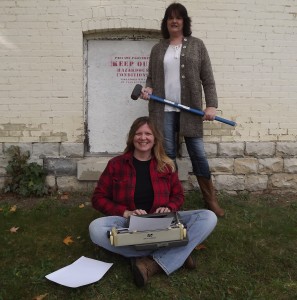Well do I know the angst and anxiety that go along with being an aspiring author. As I am new to publishing, myself, but have already garnered some level of success (I did just sign my second multi-volume contract in less than a year) I’d like to pay forward a bit of the excellent advice that’s floating around out here in the help-me-o’sphere. And I’ll begin near the end, by telling you how I got not just an agent, but a rockstar agent with Trident Media Group.
Nothing Left to Lose
It took a series of disasters to knock me down to rock bottom, a dogged, desperate, forget-all-wisdom commitment to drop out of life for a year or so and finally write that book I’d been dreaming of for decades, and a good friend who believed in me when I couldn’t find the courage to believe in myself, but I’d finally done it: I had finished writing THE DRAGON’S LEGACY.
A Ridiculous Book
It was a bit of a ridiculous book, even by fantasy standards. I had a 170,000-word manuscript with two prologues and an unwieldy number of point-of-view characters. I knew my book had a lot going for it, but I also knew that it would be a hard sell in today’s market. In order to get the agent I needed, I would need to master the submission process.
I needed the perfect query, a persistent mindset, and maybe a little bit of luck.
The Perfect Query
Since this book would be an exceptionally tough sell, and because I am Queen of the Scatterbrains, I first set out to understand the submission process and get my ducks in a row. I’d been stalking researching literary agents for months, making short and longer lists of agents who represented books like mine. Some of these agents wanted ten pages, some wanted ten pages and a synopsis, some wanted fifty pages, some just wanted a query. I spent a couple of weeks reverse engineering successful query letters, struggling to transform the Gordian knot I called an outline into two pages of something that made sense, writing a synopsis (I’d rather be waterboarded than write a synopsis of a 170k word count multi-pov fantasy novel ever again, thank you very much) and saving the first chapter, first three chapters, first ten pages, and so forth in separate files. Then I created a spreadsheet of agents I would love to work with, their submission requirements, books they had represented, and what they were currently looking for. I felt that it was important for me not only to be able to describe my book, but also to show that I had done my research and was taking a professional approach to writing.
A Persistent Mindset
My initial goal was simple: I would query one agent a day, using my already-assembled materials, until I reached the end of my list of dream agents, and then I would start a new list. Though it was more than a little intimidating, I started with those agents who are known to be the very best in my genre, those who represent the books I love to read. I can’t say that I honestly believed I would get such an agent, but I’d never really believed I could finish this book, either, so what the heck.
A Little Bit of Luck
One of my favorite places to write is my local bookstore-slash-café. I was getting ready to send off a second round of queries, so I stopped in for a tub o’ coffee. They were brewing a new pot, so I had about two minutes’ worth of free time, and because of this I wandered over to the magazine section and picked up the latest issue of Writer’s Digest. In that issue I found a Literary Agent Spotlight:
http://www.writersdigest.com/editor-blogs/guide-to-literary-agents/literary-agent-spotlight-mark-gottlieb-of-trident-media-group
I thought I needed a grouchy old white-haired guy with a wrinkled sweater and a basement full of musty old books. This agent was young, and new, and…holy cow, he was with Trident Media Group, which was at the very pinnacle of my wish list. There’s no way, I figured, a novice author with a weird book could ever get such an agent. But I steeled my last nerve and submitted my query letter through Trident’s site. Then I refreshed my email inbox to make sure my submission had gone through.
There, not two minutes after clicking ‘submit’, was a request for a full manuscript.
After taking a lot of deep breaths, and with shaking hands, I emailed my entire manuscript to Mark Gottlieb…
…who took the weekend off to read it…
…by Sunday afternoon, Mark had finished reading my manuscript and sent me another email, this one indicating that he would like to speak with me regarding representation.
Within four months, Mark had sold THE DRAGON’S LEGACY in a three-book-deal to Titan Books; it will be released in hardcover Spring 2017. Less than a year later, my rockstar agent sold my second book, DAUGHTER OF THE MIDNIGHT SUN, also to Steve Saffel of Titan Books in a two-book deal, also set to be released Spring 2017.
Write a good book, write a good query letter, do your homework. And dare to dream big.




The Real Secret to Getting a Literary Agent
Or:
How to succeed in your search for literary representation, sell your book, and ultimately buy a castle in Scotland so your kids can go to Hogwarts.
With a special nod to Daniel Weaver, whose books will eventually earn millions and you heard it here first.
So. You’ve got a book written (if you haven’t finished writing your book, get off my damn page and go write your fucking book, goddammit, this is your writing time and you’re wasting it on this shit???) …and I mean written. Finished, done, ping, the end, edited a fucktillion times and shiny and all ready to go. You’ve researched literary agents and found one that you HAVE to have, because your manuscript is brilliant, right? The most brilliant thing since toothpaste in a tube. You’ve also found a few that aren’t Agent #1, but Agent #1 probably won’t look at your manuscript anyway because it’s the worst idea since toothpaste in a jar, right?
Yeah, we’re all little balls of angst wrapped up in precious snowflake paper. You are not alone. (Okay, I lied, you really are. To write a Book of Power is to be alone.)
You get your first ten thousand words/first three chapters /synopsis/OMG are you serious, all this awesomeness in a one-page outline? Crap!/ all ready to go, and you write the most beautiful and succinct and engaging query ever to make the rounds of the Halls of Agents, and you send off a batch of queries, kissing them on the cheek and waving goodbye to the school bus with tears in your eyes, knowing that your little darlings are going to come home that evening with offers of representation and sales contracts all ready for you to sign.
You’re so cute, all eager and optimistic. Let me look at you for a moment and weep for what is to come.
Most of your darlings are never heard from again (maybe you shouldn’t have queried Pennywise the Clown. Just sayin’). The ones that do come back tumble off the bus crying, with skinned knees and black eyes and swollen lips, and stories of school bullies and horrible, horrible math teachers.
Congratulations, Aspiring Author! You have received your first round of rejections. Now it’s time to get to the shopkeeper and buy your ultimate weapon:
Big Girl Panties. +1 Constitution, +3 Resolve, and they’re waterproof besides.
After you pull those ugly buggers up and mop your snotty, tear-stained face, and brush the taste of whiskey from your mouth, it’s time to take a look at what the rejection letters say. If they say anything at all, that is huge. Scribbled notes and encouraging one liners are gold. Sometimes you’ll get the polite equivalent of “keep your day job”, if you HAVE a day job, and if you’re good at keeping one, which a lot of writers aren’t. Sometimes you get good advice.
And sometimes you get “I loved this, but…” your book is too weird. Doesn’t fit in. Too much like every other book in your genre. Not enough like every other book in your genre (yes, I’ve gotten both of those, and in the same week.) If an agent looooves your book, this is a very good sign.
And right now you want to hit me over the head with something (don’t. I can take you.) because “I loved this but…” is NOT an offer of representation, right?
And here’s where I tell you the ONE THING you need to know about traditional publishing:
Traditional publishing is nuts.
Traditional publishing is no longer a venerable editor hiding in a dungeon of magical books, wheezing as he labors to make your manuscript a Book of Power (meaning he deletes that one comma you had out of place, of course, snowflake) and grooming you to be the Tolkien of your generation. The big publishing houses have all been bought up by goblins—actual goblins, I am not speaking in metaphors—and as we all know, goblins care for nothing but the bottom line.
(Yes, I am doing this so that I can avoid using actual numbers and showing my sources and shit. Trust me: my version is close enough to the truth to bite it in the ass.)
These trolls keep our beloved editors chained in dungeons (or worse, CUBICLES) where they slave away at—you might want to peek through your fingers at this one, it’s horrifying—PROFIT AND LOSS STATEMENTS.
Go ahead, cry. Have a shot of whiskey. I know I did.
That’s right, Buttercup. Before the Dark Editorial Overlord can make an offer on your magical manuscript, she has to run it through a gauntlet of red and black ink, and prove that it can make money for the goblins, who don’t even read. Then she has to show it to the other editors, who also have to prove that it will sell, and take it to a committee, who will want to run it through the numbers…
Agents know this. Agents don’t make money unless they sell books, and they sell books to these editors, who have to run everything through the goblin overlords before releasing any money or all these fine people risk losing their jobs. So it’s impossible for an agent to offer representation to something that can’t be sold, and it’s impossible for an editor to run a profit and loss statement on something that hasn’t been done before, because DUH. NUMBERS.
You get the idea. Traditional publishing is about the numbers, not the words.
But…
Always.
But my book…
No.
But I’m diff…
Stop. Just stop. As one of my Arabic instructors was fond of saying, “It is always, always, always this way. Except when it is not.”
Yeah, you perked up at that last bit, right? That’s the secret to getting your (well written, edited to death, ready to fly off the bookshelves) book agented, and sold, and ultimately roll in the dragon’s hoard (which only LOOKS like a small pile of one dollar bills) that will be the end reward for all your hard work. The one thing you need to know about publishing? The big secret to success is:
Agents are crazy. So are editors. You have to be certifiably batshit to ever think this can work, and these people believe, deep down, that this can work, that they can reach down into a dark pit of sludge and adverbs and horrifyingly bad sex scenes and draw forth something beautiful and brilliant and new. And they can get this thing past the goblin overlords and into people’s hands, where they will read it!
If you write a good book (again, if you haven’t done this yet, get off the internet and finish the damn thing, knucklehead), even a great book, one that is close enough to your genre that readers will love the things they love, and new enough that readers will put it down feeling that they’ve had a wonderful new adventure, if you follow the rules of querying (write a killer query letter, do your research, follow submission guidelines and for the love of Cthulhu don’t be a dick) and just keep at it, head-down horns-out and plowing through the screaming crowd like it’s not even there, eventually this will happen:
Somewhere, in an office that reeks of rotting dreams, an agent will be sitting with his head in his hands, hating life. He got into this business because he loves books and he dreamed of big things, of better things, of making the world a more magical place. If he has to run one more brilliant manuscript through that damn Excel spreadsheet, if he has to do one more “Harry Potter meets Twilight” comparison, he’s gonna…
That’s it. He’s had enough. He’s gonna quit and go sell cars with his uncle Patty in Detroit. But before he goes, by gum, he’s going to do one thing right. If he’ going to throw his career down the shitter, he’s going to do it in style, he’s going down in flames. There will be a day when an agent says “Fuck it!” and offers to represent a brilliant new author because he LOVES THE BOOK, dammit, and today is that day!
Fire in his eyes, he logs into his email and…
Crap.
Crap.
Crap.
Adjective hell.
Paranormal porn, wtf…
And then your query shines forth, like a shining white hand rising from the misty lake, offering up treasure. This is it! THIS is why he took this rotten job in the first place!
Knowing full well that he’s throwing away a lucrative career, (almost as lucrative as the average author’s, one hopes), he pounds out an offer of representation.
This is the literary equivalent of the vorpal sword, and snicker-snack, and galumphing with a severed head, and so forth. The agent will have sobered up by the following Tuesday–agents have to eat, too, one cannot subsist solely on a diet of shattered dreams–so make sure you snatch up that offer of representation before he regains his sanity.
Okay, you ask, but how can my agent (who is trying not to show he has buyer’s remorse, and will work three times as hard to sell your book because now his career is on the line and he really does not want to sell cars) sell this book to an editor, who cannot rationally make an offer on a book that doesn’t fit into the numbers game?
Heh. You said “rationally”.
Some day, perhaps some day soon, an editor will be sitting at her desk, head in hands, weeping with despair, and she will also have a moment of disconnect from reality and decide that TODAY is the DAY…
So, there it is. If you have written a very good book, the best you can write, the best book every written, by Smaug’s hairy toes…if you do your research and query by the book and don’t be a dick, it is a statistical certainty that eventually you will hit the perfect convergence of insanity between an agent and an acquisitions editor, and your book will sell.
And then comes the hard part.
Hey, I never said this story had a HAPPY ending. Suck it up, Buttercup; we’re all mad, here.
Jai tu wai,
Debi
Follow on Twitter
Connect on Facebook
Visit website